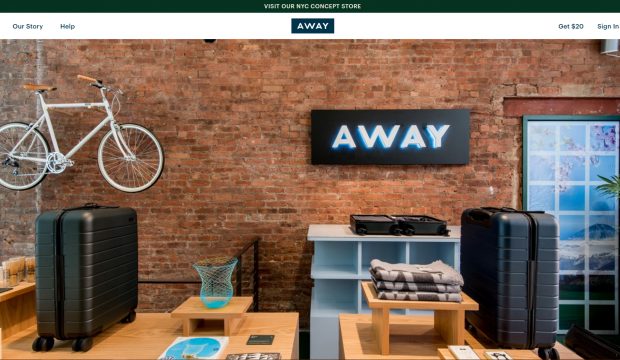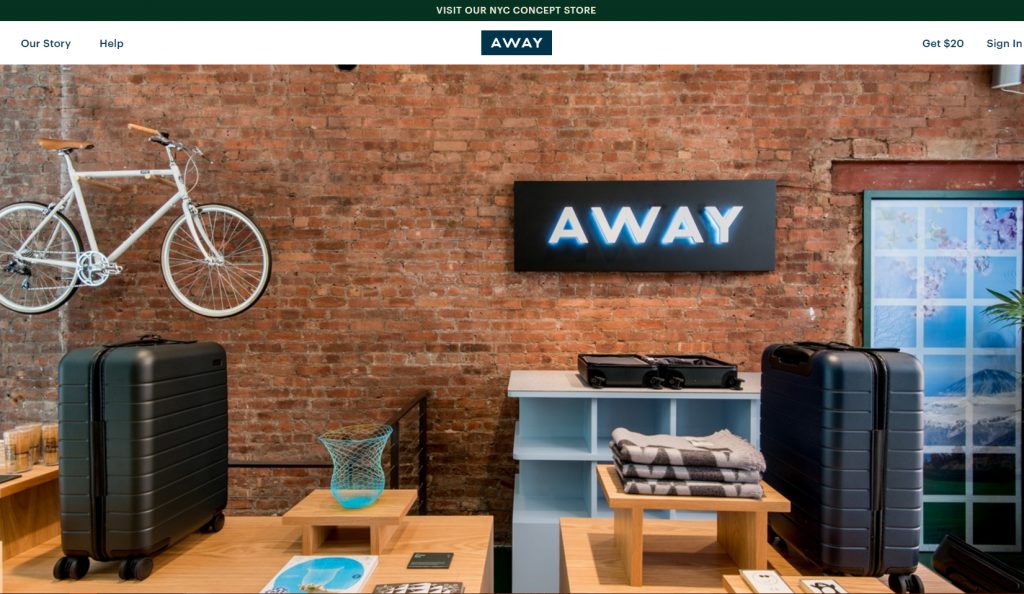

The Retail Report is a recurring look at different physical retail shops. Here, we examine the merchandising, branding, marketing and storytelling through branded environments.
Pop-up shops are increasingly becoming a popular retail option among emerging fashion and lifestyle brands – and for good reason. Among other benefits, a pop-up allows a brand to test its retail strength and operations, draw new customers, and generate PR for less investment than a traditional store lease. There are many different goals in operating a pop up shop; some brands only look at pop-ups as a new sales channel – something to move merchandise. Others see it as a chance to tell the a story and offer consumers a new way to experience the brand. Some do both–which is the best possible scenario, and one we wrote about here.
In New York City there is no shortage of pop-ups. But each one is managed and presented differently. There is also a huge range in the overall quality. What we mean by quality includes (but is not limited to) the following:
- the quality of retail displays
- a distinct point of view when it comes to the curation of products
- the customer service experience
- whether the store is on-brand
- and if it has that little something extra – the thing that causes delight in customers
- Additionally, a high-quality pop up reinforces the brand’s attitude and personality
We’ll save the in-depth look at great retail display for another post, but quickly – it may involve, lighting, use of color, scale, height, level, variety, and a disciplined use of props.
A great example of a high-quality pop-up is Away’s concept store in NYC.
Away makes “First class luggage at a coach price.” In their own words – the description of its store:
A New York nod to two places that move us: Tokyo and Stockholm. Visit our store in NoHo to take the Away bag for a spin and for an Away-approved selection of goods—objects from our friends in Japan and Sweden, as well as limited edition collaborations with Tokyobike, Sockerbit, CAP Beauty, and more.
The store – open through August 31st, 2016 – gets many things right regarding the retail points previously made.
Away made great use of a rather small space, dividing the store into two distinct areas, representing Tokyo and Stockholm. Simple display fixtures made from clean white tiles and white shelving allows the curated products to speak for themselves. The lighting, produced from fixtures and natural lighting from either end of the store, is great and makes the small space feel airy.
The mixture of items – the cool, practical, artistic, quirky and fun gives customers insight into the brand, its values and personality. Here, you feel like you’re in a fun, unique little gift shop that you stumbled across rather than “just” a store. The store becomes a destination rather than a place where you have to go – like a chore – to pick something up. Everywhere you look there is something interesting. The Away suitcase is positioned in several areas, which gently reminds the customer why they are really there in the first place – to check out the main product. It’s subtle but fulfills the ultimate purpose of providing exposure.
Customer service was great! The associate was warm and friendly, and knew her stuff. There were some surprising things to note about the suitcase, such as the German-made shell and Japanese wheels. Also, I didn’t realize there was a “patent pending” storage system in the case that helps to squish your travel stuff down and secure it nicely. On first glance, the suitcase looks pretty small – but discovering that it’s built to hold more than expected was pretty cool. Customers want to be educated about the products they purchase and the fact that Away took the time to properly train staff was a smart move. There are definitely pop-ups that employ under-prepared staff which can lead to a dull experience.
Since Away is an emerging brand, we have yet to see the brand and personality fully developed, it is difficult to say whether this was on-brand on not. There was certainly a strategy behind the presentation, and perhaps this was an introduction for what is to come. Through this pop up shop, we can see that Away is setting themselves up as a travel and lifestyle brand – not a company that produces suitcases. This is a really important point. Many new brands get caught up in the items and products they currently produce without setting a long-term vision that is necessary for growth. Clearly, Away is ahead of the game on this one.
Now, an analysis is not complete if it’s only positive – we need to look at areas for improvement too. Feedback includes points about the display and branding.
For example, it would have been nice to see the suitcase filled with items for a hypothetical trip. Perhaps they could have packed one suitcase with items they would bring for a trip to Tokyo in the summer. This would have allowed a customer to see the patent-pending packing system in action.
Perhaps another suitcase could utilize eye-catching tags highlighting attributes such as the Japanese wheels, patent-pending packing system and German case. This enables customers to gather information in the absence of an associate and at their own pace. It would be tricky to do this well and not be too “sales-y,” but options exist.
The contrast of Swedish and Japanese storylines made for a great and interesting shop. However, it would have perhaps made sense to thoroughly connect the concept store to the brand, especially for an initial launch. Instead of Sweden and Japan, the inspirations should have been taken from Germany and Japan, given the materials they deliberately chose for the luggage.
All in all, Away created a space that was fun and inviting – grabbing attention from passers-by, current, and potential customers. The shop generated press which further enhanced awareness. And perhaps more importantly the shop allowed them to put a stake in the ground, claiming presence as a travel and lifestyle brand with a distinct personality. After the visit, we are confident that this brand will continue to grow and we can’t wait to see what they will do next.
